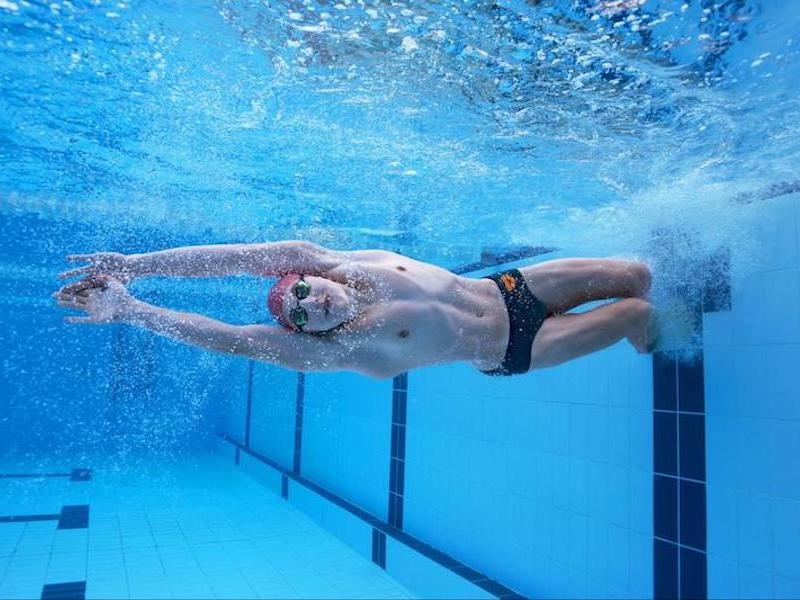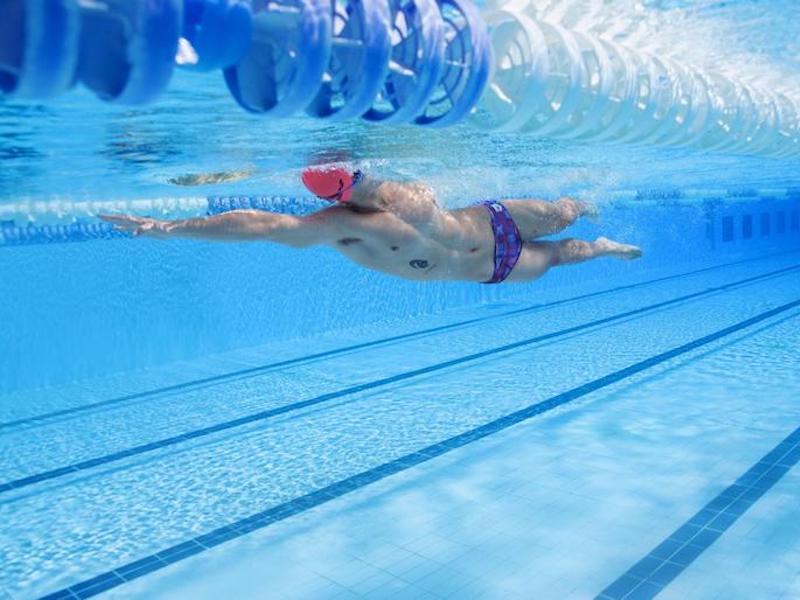Can You Swim With Contacts, and What Are the Risks?
If you wear contact lenses, you might wonder, “Can you swim with contacts?” The FDA makes it clear that you should not expose contact lenses to any type of water, making swimming while wearing them seem like a challenging task.
However, you can’t go swimming without seeing well, so today, we want to shed light on what there is to know about swimming with contact lenses and the other options available to you. After all, swimming is an excellent cure for stress, so you shouldn’t let your vision inhibit your ability to participate in the sport.
We’ll start by covering the potential risks to your eye health that come with exposing contact lenses to water. After that, we’ll move into what symptoms you should look out for if you think you have an eye infection. Then, we’ll review the options you have if you must wear contacts while swimming. Finally, we’ll cover alternative solutions to wearing contact lenses.
The Potential Risks of Swimming With Contacts
If you’re wondering if you can swim with contacts, the FDA’s answer is not unless you keep all types of water away from your eyes. The FDA does not advise exposing your contact lenses to any type of water, including tap water, fresh water, or saltwater. It also recommends removing your contact lenses before entering a swimming pool or hot tub.
Contact lenses can absorb water and hold bacteria, viruses, microbes, and pathogens, creating a risk for eye infection. If contact lenses are exposed to water, your eyes may also experience abrasions to the cornea and general irritation.
One microorganism to be concerned about is called the Acanthamoeba. While infection is rare from this microbe, these amoebas are found in all types of water, and wearing contact lenses can increase the risk of an eye infection. The infection caused by exposure to this amoeba is called Acanthamoeba keratitis, which can result in permanent vision loss.
If you wear contacts and experience any irregular symptoms in your eyes, like inflammation or eye irritation, you should consult a healthcare professional immediately for an eye exam.
Watch Out for an Eye Infection
If you find that your contacts have been contaminated with water, it is a good idea to know what eye infection symptoms to watch out for. If you have any of the symptoms listed below after swimming with contacts, reach out to your doctor for more information.
- Redness: Check for any redness in or around your eye.
- Itching: Be aware of itching and avoid rubbing your eyes to reduce the risk of scratching your cornea or further irritating an infection.
- Swelling: Swelling and inflammation around your eye can be a symptom of infection.
- Discharge: If you notice any unusual discharge coming from your eye, it could be a sign your body is fighting an infection.
- Pain: You should monitor pain in or around your eye and contact your doctor with any questions you might have.
- Vision issues: If you notice any impairment to your vision, contact your doctor immediately for an eye exam.
If you do come down with an infection of your eye, your best bet is to reach out to a healthcare professional as soon as possible. The sooner you can get a diagnosis of what is going on in your eye, the sooner you can heal and get back in the water.
How Can You Swim With Contacts?

For some, though, it is unsafe and impractical to swim without correction to their vision. Open-water swimmers and triathletes need to see their surroundings in order to know their position in the water. Lap swimmers have to see the interval clock and the swimmers around them.
If you need to swim with contacts so that you can see clearly, there are ways to do it safely. Let’s go over your options for how you can swim with contacts more safely.
Wear Swim Goggles
Your first option is to wear goggles at all times while swimming. A pair of waterproof swim goggles will keep your eyes away from the water throughout your training sessions and races. Be sure to select a pair of quality swim goggles to ensure that no water leaks will occur and that they’ll remain comfortable for long periods of use.
Not only will you keep your contact lenses away from the water, but goggles also provide UV protection for additional eye health.
Flush Your Eyes After Swimming
Remove your contact lenses as soon as you can after you finish swimming. After taking out your contact lenses, flush your eyes with fresh water or an eye-cleansing solution. You can also use artificial tears or rewetting drops if you have any eye fatigue after wearing your contact lenses while swimming.
Sanitize Your Contacts Immediately
Remove your contacts and clean them right after swimming. Use a contact lens solution to clean the contacts. Gently rub the contact lens with the recommended solution to remove any particles. Rinse the contact lenses with the solution. Store them in a contact lens case in clean solution until their next use.
Use Daily Disposable Contacts
It is an excellent idea to use disposable contact lenses if you plan on swimming while wearing them. Daily disposable lenses are only worn once and are discarded after each use. This allows you to throw away the contact lenses immediately following your swim. The next time you swim, you can use a fresh pair of contact lenses that you can be certain are free of any pathogens or bacteria.
Alternatives to Swimming With Contacts

If you’d rather not wear contact lenses, there are plenty of safe vision correction alternatives you can use to enjoy your swim with clear sight. Your options include prescription swimming goggles, laser eye surgery, and rigid gas permeable contacts.
Prescription Swimming Goggles
Prescription goggles provide you with the same level of clarity without the health risks associated with wearing contacts while swimming. With a pair of prescription goggles, you’ll be able to enjoy your swims in any setting, whether it’s at the local pool or your favorite open-water swim destination. Talk to your optometrist about getting a pair of prescription swimming goggles.
Laser Eye Surgery
Laser eye surgery, like LASIK or SMILE, can correct your vision so you don’t have to rely on contact lenses or prescription swim goggles. You won’t have to worry about cleaning contact lenses anymore or taking them out right after you finish swimming. All you’ll need to worry about is beating your personal records and cruising through your swim sets. Talk to an optician to see if you are a good candidate for laser eye surgery.
Rigid Gas Permeable Contacts
Rigid gas permeable contacts are a unique alternative to soft lenses that can correct your vision. They are worn while you sleep at night and are designed to reshape your cornea so you can see clearly when you remove them the next morning. Rigid gas permeable lenses provide you the chance to swim without contacts or prescription goggles. Talk to your eye doctor to see if they are right for you.
Keep Your Eyes Safe When You Swim
Eye care is important for contact lens wearers, so it’s smart to ask the question, “Can you swim with contacts?” It is best to avoid getting pool water or ocean water on your contacts while swimming to limit your chances of getting an eye infection. If you must swim with contacts, make sure you wear goggles, clean your contacts, and consider wearing daily disposable lenses. Other options include prescription goggles, laser eye surgery, or rigid gas permeable contacts.
Visit arena’s online store to check out our water-tight swim goggles and all of our swim gear.
Written by:
Harrison Howarth
Harrison is a freelance writer with a background in competitive aquatic sports. His love for water polo and swim, combined with his passion for writing and education, drives him to continue teaching and inspiring individuals to participate in aquatics.







